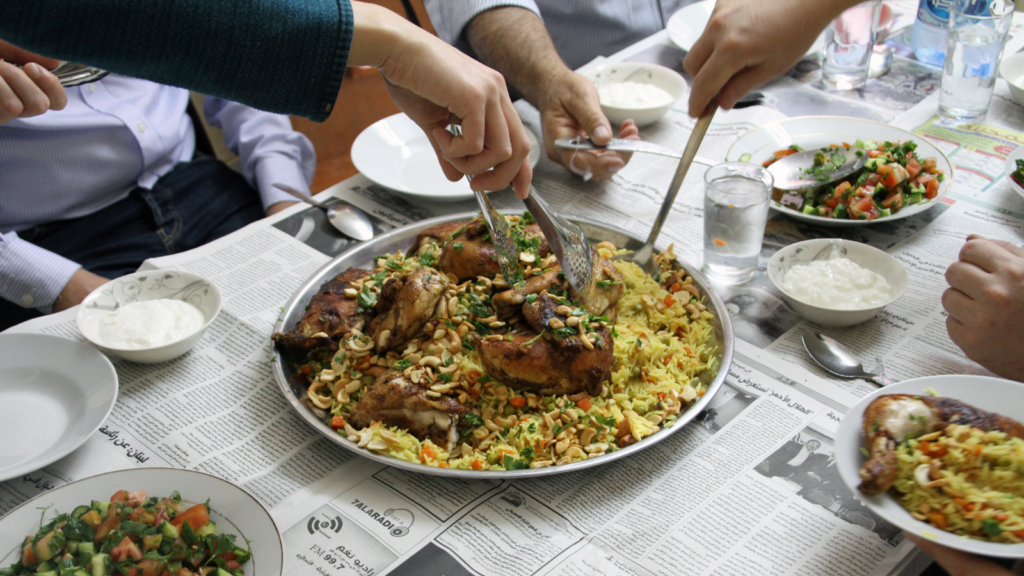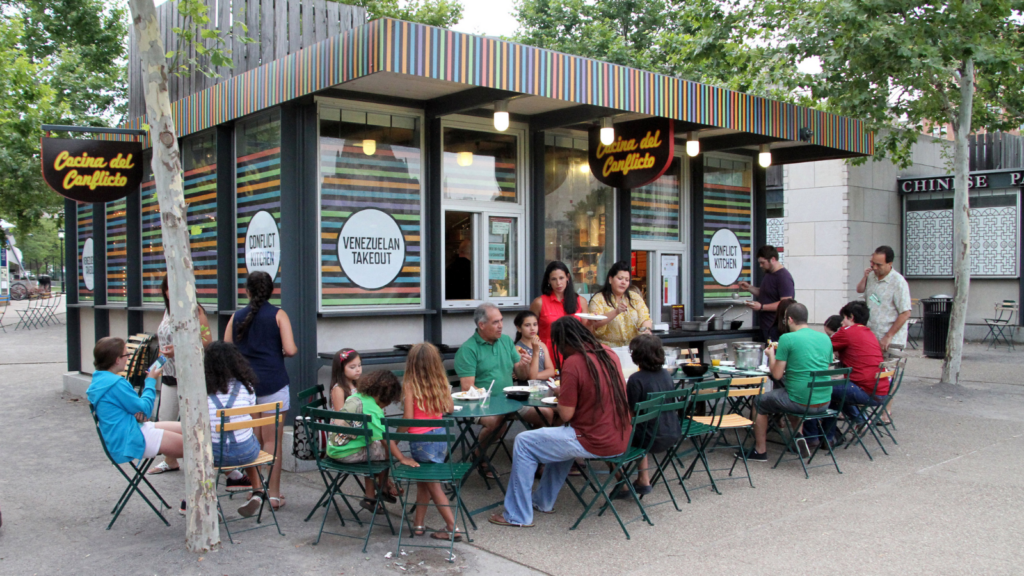Conflict Kitchen
Operating seven days a week in the middle of the city, Conflict Kitchen used the social relations of food and exchange to engage the general public in discussions about countries, cultures, and people that they might know little about outside of the polarizing rhetoric of governmental politics and the narrow lens of media headlines.
In addition, the restaurant created a constantly changing site for platforming the under-recognized diversity of the City of Pittsburgh, as it has presented the first Iranian, Afghan, Cuban, Venezuelan, North Korean, Haudenosaunne and Palestinian restaurants the city had seen.

City
Country
Region
Year of Creation
Featured Project

Resources
Shin, R., & Bae, J. (2019). Conflict kitchen and enemy kitchen: Socially engaged food pedagogy. Studies in Art Education, 60(3), 219-235.
del Águila, V. U. (2020). The Agonistic Design of Conflict Kitchen. In Design and Political Dissent (pp. 187-201). Routledge.
Bae, J. (2020). Contemporary art practices in preservice teacher education: Using conflict kitchen in a college art methods course. Art Education, 73(1), 38-45.
Remer, C. R. (2015). “Interculinary” Dialogue: The Kitchen as an “Unconditional Space” For Intercultural Dialogue and Political Awareness.
Jennings, G. (2020). Dinner in the Desert Kitchen: Reflections on Experiential Learning Through Food, Art, and Social Practice. In Diverse Pedagogical Approaches to Experiential Learning: Multidisciplinary Case Studies, Reflections, and Strategies, 129-147.
Walsh, L. (2012). The Living Cookbook. Museums & Social Issues, 7(1), 87-90.
More Information
IMPORTANT: Profile pages for all collectives are in permanent development and have been built using information in the public domain. They will be updated progressively and in dialogue with the organizations by the end of 2024. New features and sections will be included in 2025, like featured videos, and additional featured projects. Please contact us if you discover errors. For more information on mapping criteria and to submit your organization’s information to be potentially included in the database, visit this page

